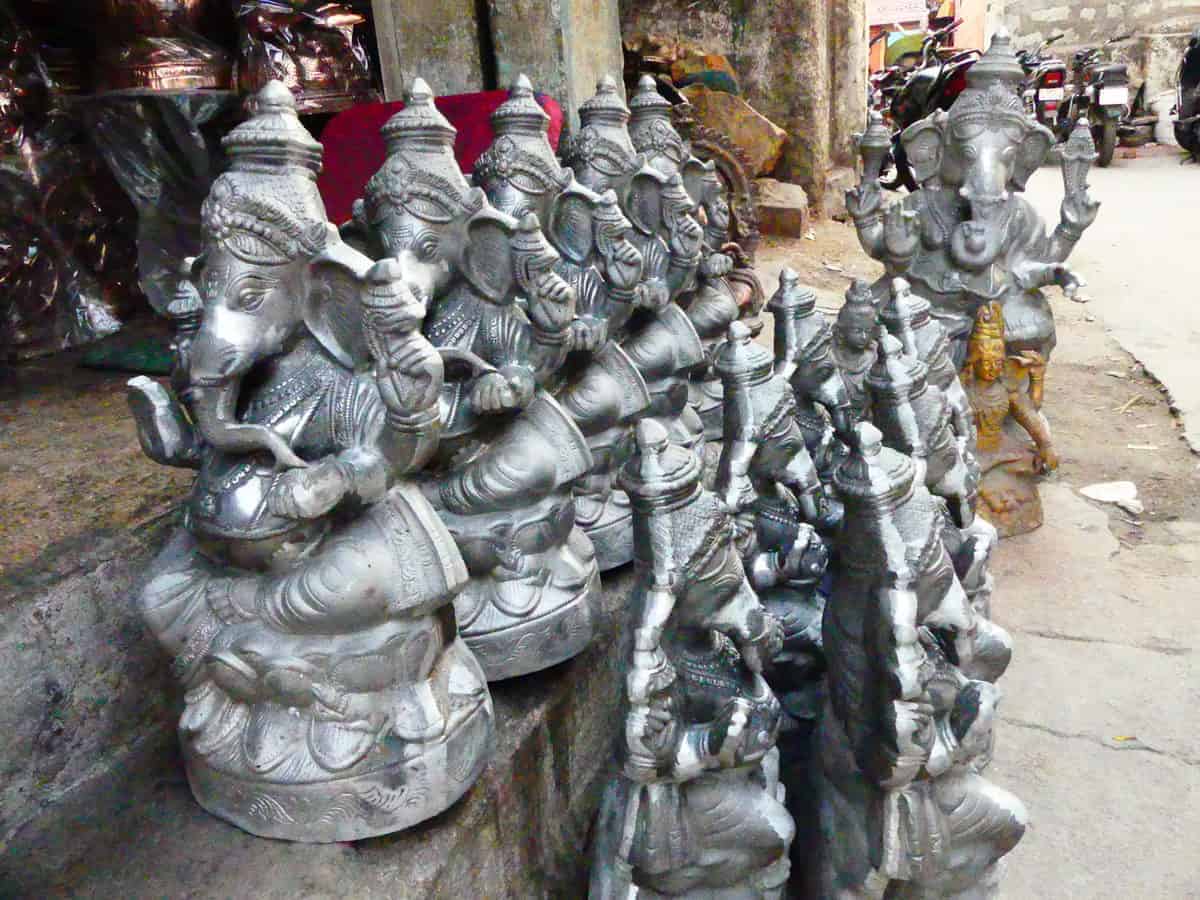Daneesh Majid and Mohammed Hussain
Hyderabad: The rustic charm of Mahbub Chowk does not ooze only through its dilapidated book stalls selling Urdu literature in derelict condition or the majestic clock tower named after the sixth Nizam.
The colossal clock tower, a symbol of Mahbob Ali Pasha’s legacy, attracts the upward gaze of any passerby. However, upon entering the Chotelal Statue Manufacturing and Wholesale Centre from the Chowk’s main road, a giant figurine of Emperor Shivaji alongside many miniature versions make one think they might have entered Maratha territory.
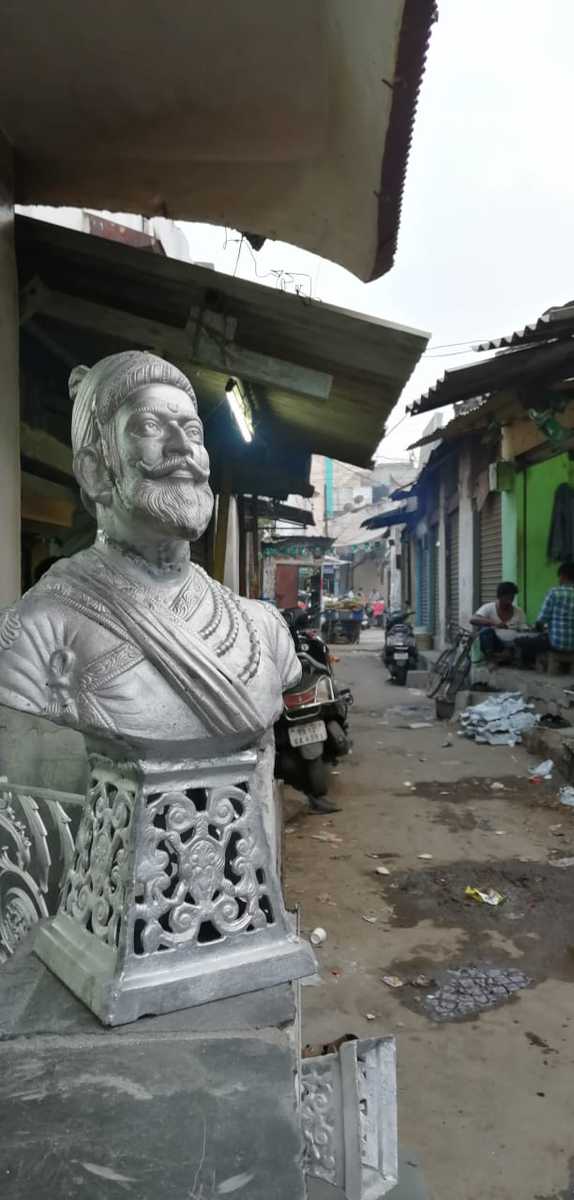
That too, in an area named after his Deccani rival’s descendant.
Then out comes Ahmed Mohammed, the individual who owns the statue enterprise receives orders to construct several Shivaji figurines.
Most of these early shops in this area were started by four brothers Niyaz Mohammed—Ahmed’s father, Mohammed Khaja, Mohammed Sardar and Mohammed Pasha.




“When it comes to black metal, India still looks to Hyderabad,” he exclaims.
He also mentions, Mahbub Chowk — or simply “Chowk” — was once known for its bustling metal market.
During the walk from Ahmed’s office to the kaarkhaana, tucked between two perpendicular bylanes, this could not be more apparent. The clucking of chickens keeps supplanting the pops and crackles of welding machines.
Hyderabad — A Bygone Bastion of Black Metal
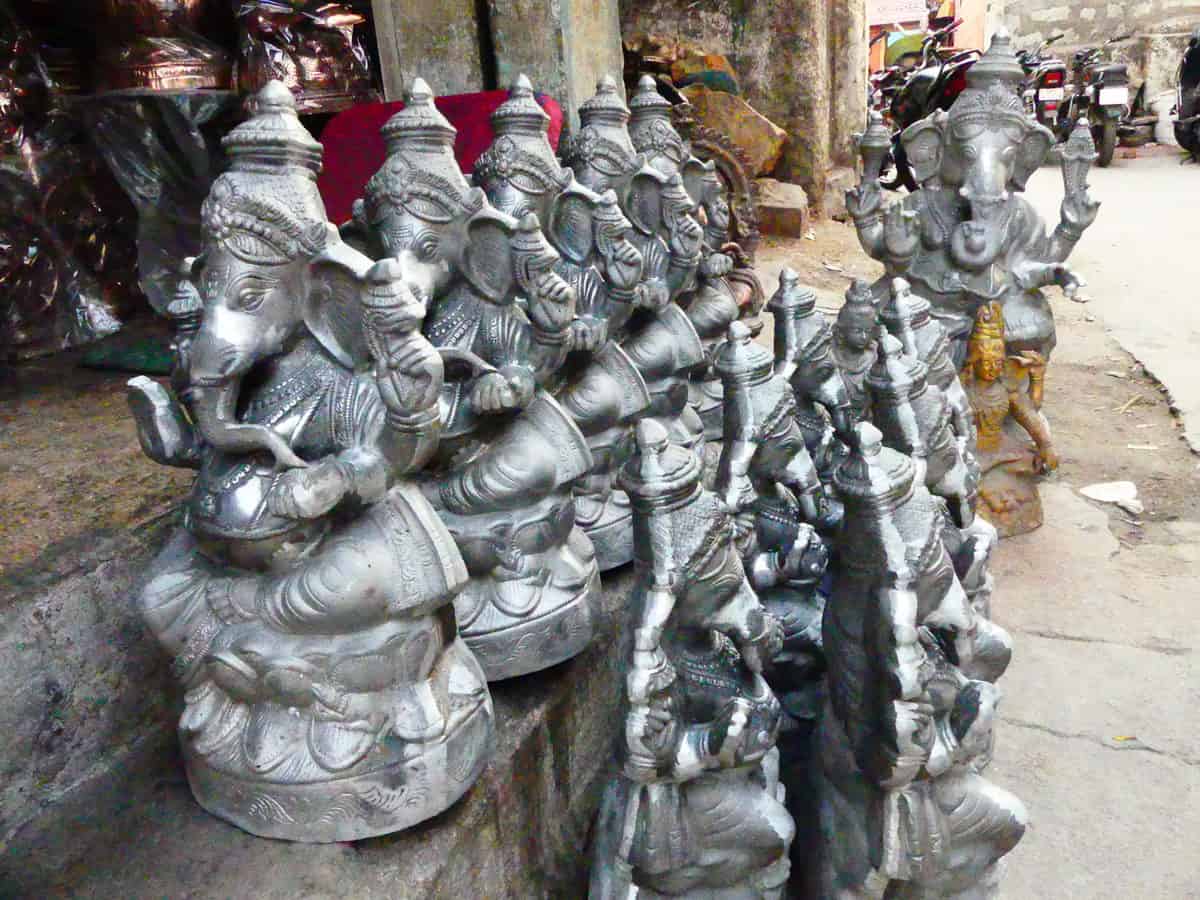
En route to the kaarkhaana, we stop at Mohammed Khaja’s shop. Here, gold-coloured decorative lamps — known as farshis — only display rather than statues. There two gentlemen are approachable with their inputs regarding this industry and other external factors dismantling it. One of them is a former merchant who once owned a shop in the market. Mohammed Abdul Aqeel reveals that only 15 years ago he quit metal market. In a semi-nostalgic tone, he recalls a time when the four brothers used to export their statues all over the country.
Aqeel states that he made a graceful exit from this line of work as his kids went onto pursue more professional occupations. The worker named *Pasha (name changed) ferociously intervenes, “Jis ke paas taaleem nahin hai, woh nahin daalna chaarai apne bacchon ku yeh line mein. Sob jane OLA ya to Uber mein jaana chhaarein (Those who cannot educate their kids don’t want their children to pursue this path, they are opting for Uber and OLA cabs).”
After reprimanding Pasha in a friendly way for such unparliamentarily language, rather than dwelling on the NRC elephant in the room, Aqeel takes us back about two decades. He claims, “Every state used to buy from this market, but when Chinese imports started coming here in 2000, the metal industry began to fall.”
He also states that the Chowk black metal market is one that contained almost 200 shops but now there are only around 25 to 30. “This industry used to feed 1,000 families, now only about 50-60 families are barely subsisting on this,” he adds.
No wonder the golden and gaudy-looking farshi that are now fixtures in many wedding functions are more lucrative than the metal that Chowk is famous for.
What’s in a Name?
Continuing to Chotelal’s kaarkhaana besides Ahmed’s worker, Kishore Kumar’s evergreen voice asking, “Meri sapnon Ki Rani kab aayegi tu? from a shop guides us into the alley containing mini emporiums of effigies.
Here though, it is not a majestic emperor that greets us this time, but rather goddess Saraswati and Lords Balaji and Ganesh.
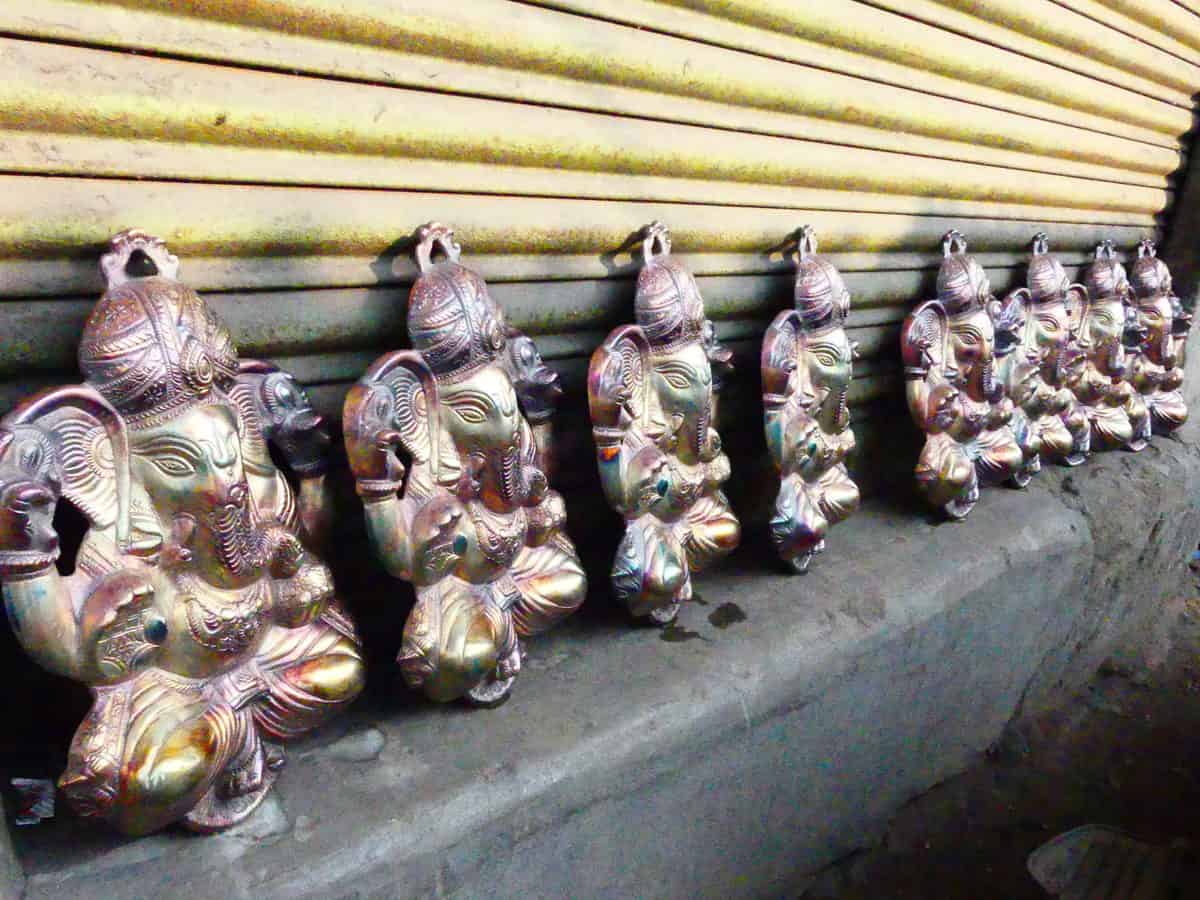
While familiarizing ourselves with the extensive process — be it the hollowing part where the model of what is to be the final product is given shape, the moulding phase during which the actual production happens, the welding procedure that merges metals — the following question vexes some of these workers.
“What is your name?” sometimes elicits a straightforward a rebuff.
He then slightly reprimands us, “NaamaaN nakko poocho! (Do not ask for our names!)”, before telling us that he has been doing this for 10 years.
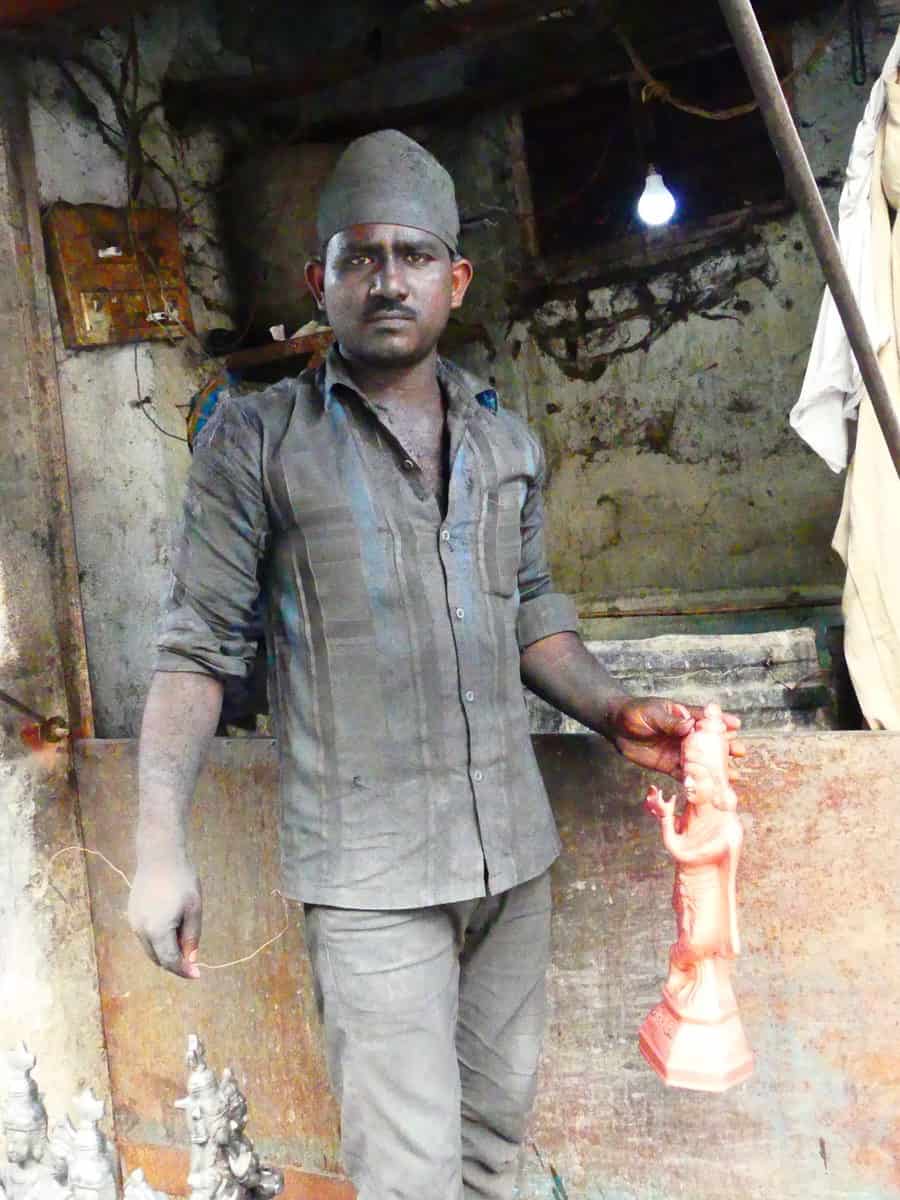
Mohammed Afroz, the fellow who oversees and handles the moulding phase, is more forthcoming with his name.
As we move to another area of the kaarkhaana, a different upbeat Kishore Da tune, “Jai Jai Shiv Shankar,” starts blaring from the little speaker. This welding is a sheer joy to watch as one guy, a Muslim, is literally coalescing two metal segments of a Hindu Lord together. As the flame from his welding gun melts the edges of the work pieces and he uses aluminum filler material to merge the two sides of Ganpati Bappa, we ask the same touchy question.
“What is your name?”
Irked, he then says “NRC chalrai bhai, naam mat poocho please (With this NRC stuff going on, please don’t ask for my name).”
After a little prodding, he tells us about the process further. “I was born in Old City. My father and his father were born in Old City. I do not even know which document I should provide to prove my citizenship.”
Idol Creation ≠ Idol Worship
Back at Ahmed’s office, he tells us that 90 percent of his clientele is Hindu. Muslims have always been involved in creating statues of deities. They also played a role or two at the management and labour level. Many a time, this facet of the enterprise has been used to project India’s secular image, domestically and internationally.
However, he continues to receive the jabs of shirk (association of partner with what is believed to be one God) and tarvej-e- butparasti (promotion of idol worship). But these comments have ceased to have any effect on him.
He says brushing aside all direct and indirect criticism, “I say, it is also a means of sustenance for me and my workers who come from both communities. God is providing livelihoods to many people, both Hindus and Muslims, through me.”
For Ahmed and other metal merchants and statue manufacturers, creating idols doesn’t amount to worshipping them. “Ever since my father Niyaz Mohammed started Chotelal 30 years ago, Hindus and Sikhs who have placed bulk orders never had issues buying from us. When they do not have problem in buying from me, why should I have problem in selling things I get manufactured?” he adds.
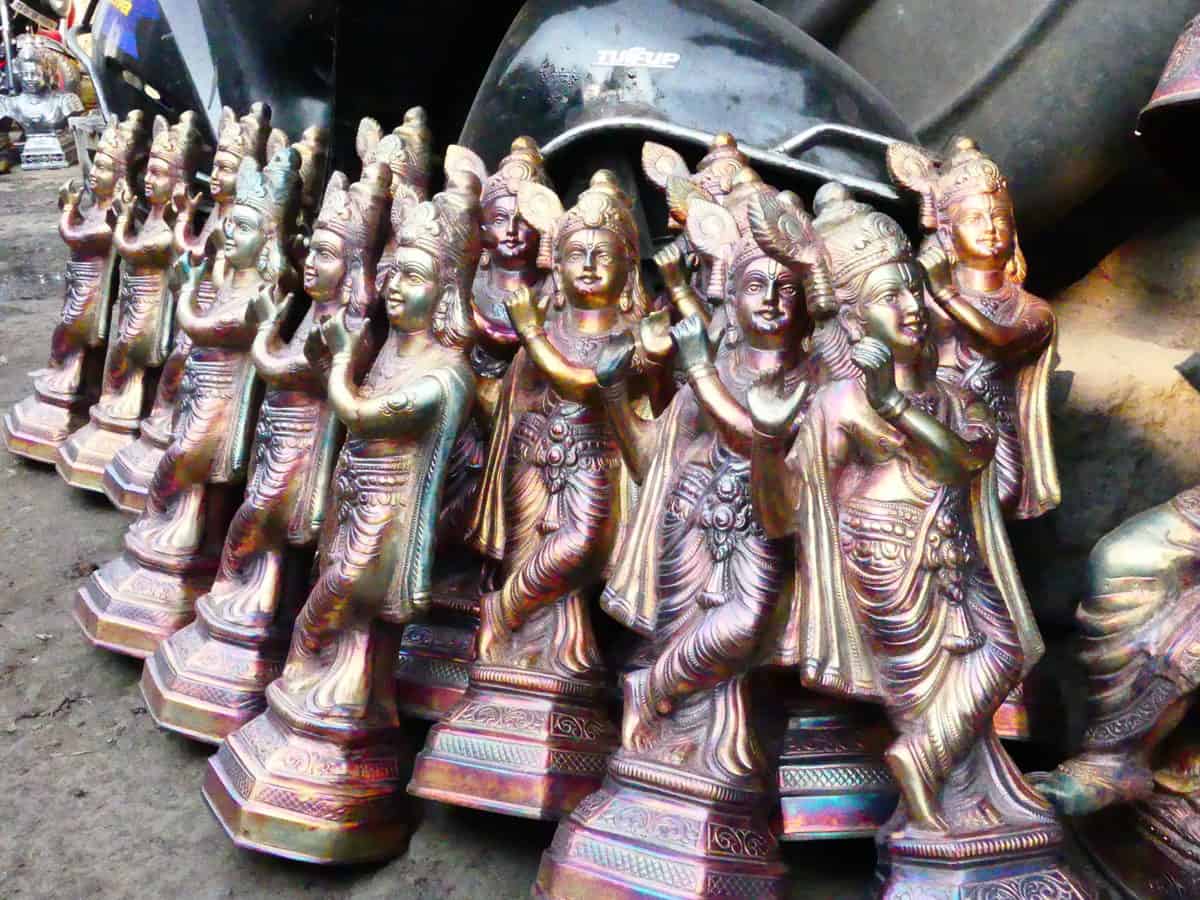
The manufacturers are more worried about new taxes like GST, than dealing with different sets of communities. However, they see how the influence of North Indian communalism is seeping into the city.
Ahmed forewarns, “If this communal discord that is surfacing more often, it could very well spell the end for this metal market. It will not only be great loss to me but also to my dear country.”
A Call to Action
Upon exiting Chotelal’s store and traversing upon the slightly larger bylane that leads to the Chowk main road, there is another shopkeeper named Ibraheem who is a little more pragmatic than Ahmed.
He also harbours the same complaints regarding the appendage — the 12 percent GST — adding onto the albatross of a handicraft tax.
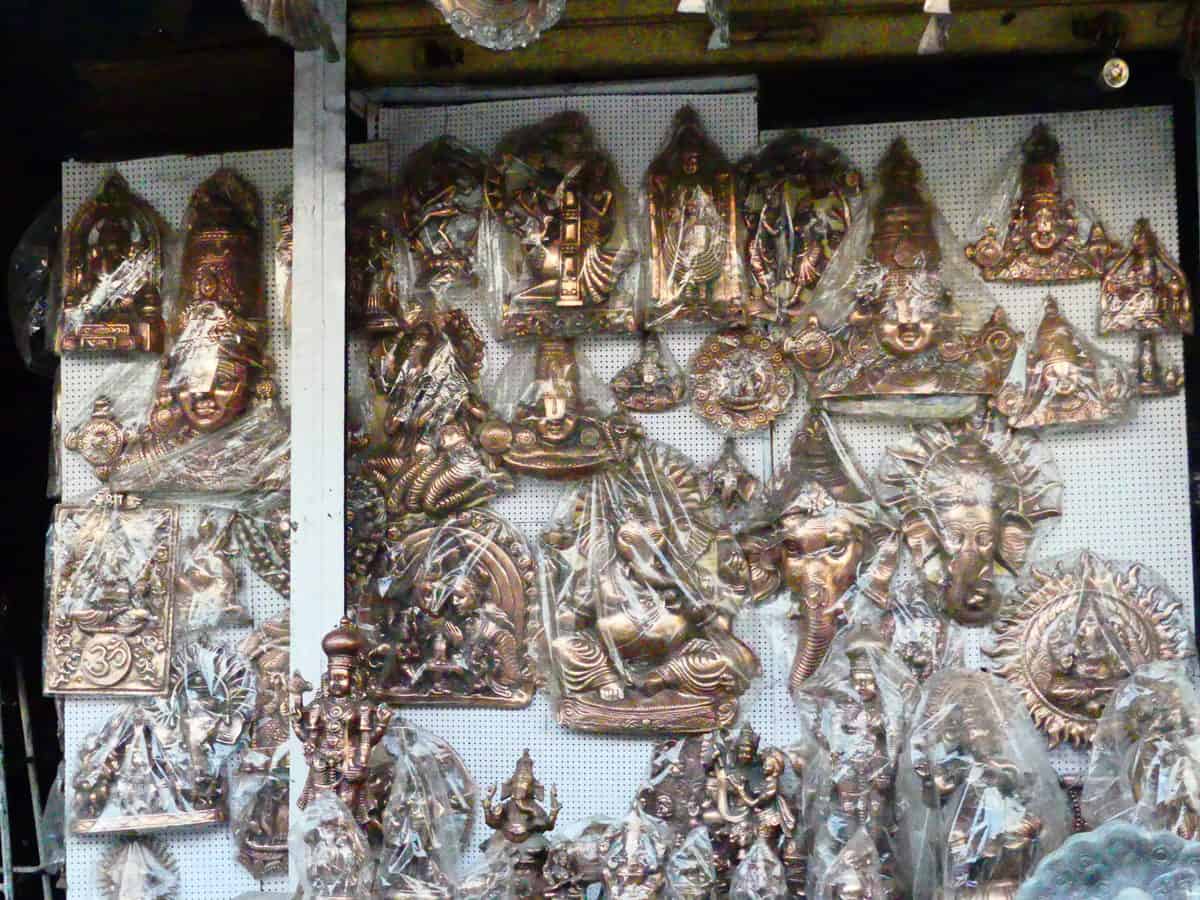
Like Aqeel, he reminisces about a time where the margins of profits were higher. Now they have become more competitive and hence decline in savings.
Businessmen across the city believe that the government should provide incentives to both manufacturers and the artisans with a view to stopping the industries from further decline.
Photos by Mohammed Hussain

